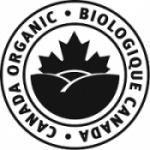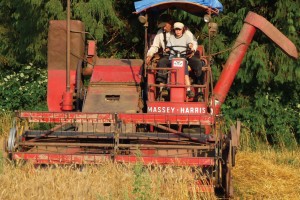
As most of our loyal, hungry, customers know, we bake our products using organically sourced ingredients. While most people are aware that this term refers to a product that has been used with a minimum of pesticides, usually needing to meet some sort of standard for its country of origin, many don’t understand the legal and formal proceedings surrounding organic goods in Canada. Here at A Bread Affair, we strive to keep our customers informed and up to date regarding the products at our disposal, and have thus thrown together a brief summary of what this actually means in the context of Canadian governance.

While organic is often used to refer to food intended for human consumption, it can also apply to livestock feed and seeds. Think about it, if a chicken is eating foods filled with pesticides and hormones, and then you eat the chicken, then all of the nasty byproducts of the original meal will unfortunately be transferred to you. In order to prove that a product is organic, those entities (basically farms) wishing to earn the official certification that declares a good as being organically sourced, must undergo scrutiny from the Canadian Food Inspection Agency, otherwise known as the CFIA. This organization is backed by a number of governing bodies, each which provides an additional layer of bureaucracy to the transition from inorganic to organic. These barriers and qualifications essentially exist to make sure that crooked farmers aren’t providing us with ingredients that haven’t been grown to meet government standards.
Commodities that wish (well, commodities don’t have brains, so it’s usually the supplier’s wish) to obtain the golden seal of approval must meet standards laid out in the Organic Products Regulations act of 2009. Comprising of 30 (riveting) sections, the list of requirements laid out in the act, known as the Canada Organic Regime, must be followed by any farmer or producer for a certain period of time before they can become properly certified.
In order to become certified in the eyes of the CFIA, a product usually has to contain at least 70 percent organic ingredients. Otherwise, it is considered illegal and the manufacturer can face serious criminal penalties. Harsh? Not really, false advertising such as this can cause serious health concerns for those with sensitivities to pesticides and fertilizers. Once a product has been witnessed over a certain period of time as being sourced from 95 percent organic ingredients, then it acquires an official seal and is officially worthy of entering our baking premises. While it may seem relatively simple for farmers to conform to the standards necessary to reach this certification, in reality it can be a very arduous process that takes years of careful agricultural management topped with government scrutiny.
We hope this has helped clarify any questions you had. Now, come on and try some of our fantastic, locally sourced baked goods. Somewhere, a farmer has worked hard to make something that is (legally) healthy and delicious for consumers like you!